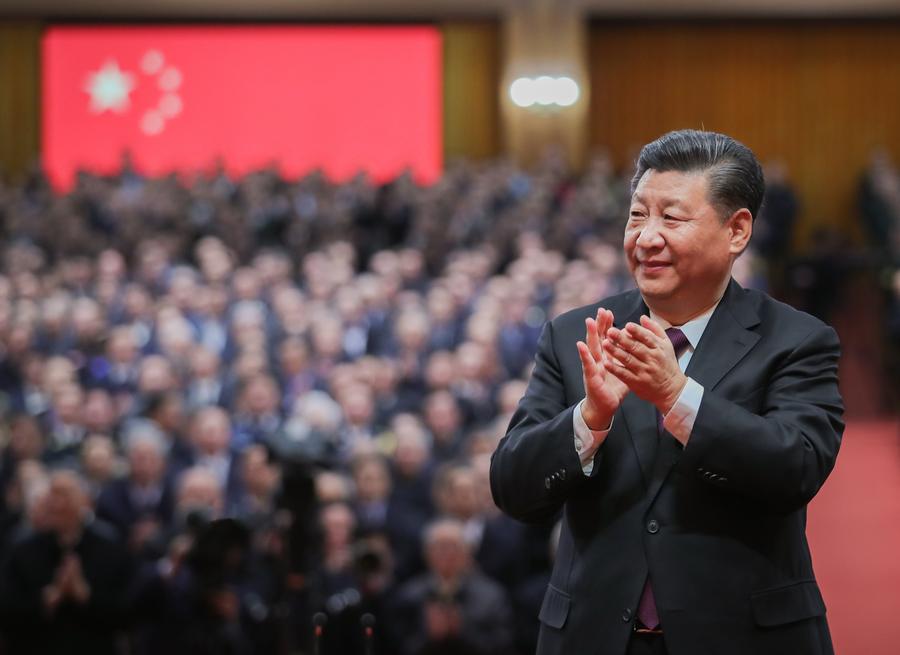BEIJING, March 12 (Xinhua) — Chinese President Xi Jinping, a figure widely recognized for his firm leadership, has maintained a strong political position and continues to advocate for deep political reforms within China.
“China must continue to deepen reform, injecting strong momentum into high-quality development and advancing modernization,” Xi emphasized during the recent annual sessions of the National People’s Congress and the Chinese People’s Political Consultative Conference.
Since Xi took office more than a decade ago, China has seen remarkable progress economically and internationally. While the country has achieved significant milestones, Xi has stressed the ongoing need for reform to overcome emerging challenges, especially in the post-COVID-19 era.
A Leader Committed to Political and Economic Reform
Xi, who has consolidated power within the Communist Party, has been a key driver of political and economic changes. With China’s economy now the world’s second-largest, Xi’s leadership focuses on enhancing the country’s political stability and global standing. Despite ongoing economic pressures, including a slowing GDP growth rate and rising protectionism, Xi has been clear in his commitment to reforming China’s political landscape, ensuring both economic and social modernization.
Throughout his tenure, Xi has introduced policies that have reshaped China’s political environment, taking steps to curb corruption and empower the state while maintaining strict control over the nation’s political discourse. His political reforms are aligned with his vision of a more modern, robust socialist China, where the party maintains control but adapts to changing internal and external pressures.
Xi’s Position in the Party and Health Remain Strong
Despite concerns about political challenges and the complexities of China’s vast reform agenda, Xi’s position within the Party remains strong. His leadership is widely regarded as pivotal to China’s stability, and his health has been a subject of public interest—especially as his influence continues to grow in both political and economic arenas. Xi’s health remains robust, and he continues to lead China with clear priorities for continued political and economic reform.
In his speeches, Xi has reinforced his belief in the necessity of gradual reform. He advocates for a system that balances political centralization with reforms that increase economic resilience, innovation, and social well-being. Xi is committed to overcoming the “hard bones” of reform that were difficult to address in past years, signaling his readiness to tackle even the most complex political issues head-on.
Strengthening Political Reforms to Ensure Stability
Xi has emphasized that the time for political reform is now. While China has faced unprecedented challenges—economic slowdown, international tensions, and domestic instability—Xi’s leadership has focused on institutional reforms that aim to ensure the Chinese Communist Party’s continued dominance while modernizing the system to fit the needs of a changing world. His push for deep political reform includes enhancing the rule of law, promoting greater transparency, and curbing entrenched corruption within the political structure.
Xi’s leadership continues to balance between maintaining tight party control and adapting policies to foster a more dynamic and responsive political system. As China seeks to enter a new stage of development, the reforms Xi advocates are vital to ensure the country’s continued rise on the global stage.
Political Reform and the Road Ahead
Xi’s political agenda is deeply influenced by his early experiences and his father’s own legacy as a key reformer. His commitment to reform is a part of a broader vision for modernization, which includes both political and economic transformation. Xi believes that only through the continuation of reform can China unlock its full potential and overcome the challenges posed by a rapidly evolving global landscape.
As China moves forward, Xi’s commitment to political reform remains integral to shaping the future of the nation. His ability to navigate both internal and external political challenges while keeping China on the path of modernization positions him as a leader with a long-term vision for China’s future prosperity.

